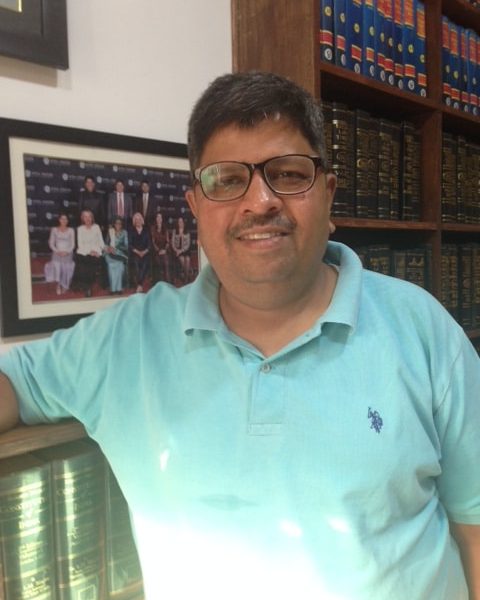
(WOMENSENEWS)-It was the week before Christmas three years ago when Nora, just 13, arrived at the makeshift East Los Angeles clinic housed in a trailer. She kept her hand in front of her mouth to hide a jaw that was bent and teeth that were crooked. She had been raped by a neighbor in her housing project.
“We were afraid she might never smile again,” said Dr. Astrid H. Heger, a pediatrician and executive director of the Violence Intervention Program at the Los Angeles County and University of Southern California Medical Center. Heger, an internationally recognized expert on domestic violence and child abuse, put her multi-discipline team to work helping Nora (not her real name).
They arranged for rape victim's services and counseling and they persuaded the university dental school to give her braces and provide oral surgery for her jaw.
Just before Christmas last year Nora returned to show the staff her picture in her high school cheerleader's outfit. Dr. Heger gave her a new dress as a Christmas present.
“She tried it on and looked in the mirror, and the look on her face was amazing when she realized she was beautiful,” Dr. Heger said in an interview. “Everyone at the clinic burst into tears.”
Teen-ager Who Was Raped Now Earns Straight A's
To celebrate this Christmas, Dr. Heger is going shopping with Nora, now a high school senior, a straight-A student and “absolutely drop-dead gorgeous.”
Women's advocates, experts like Dr. Heger, police, social workers-and women themselves-know that domestic violence, and sexual violence, surges during the holidays.
“People are drinking more, they are under more stress and they're frustrated that they're not getting what they want for Christmas,” said Dr. Heger. And they take it out on the women and girls around them.
Yet this season is but a peak in a phenomenon that has few valleys. Astrid Heger watches violence against women all year long.
Despite some happy endings like Nora's, Heger cries a lot in her job as head of the largest child abuse center in California and the largest rape treatment program in the United States. It consists of two house trailers next door to the 10-story county hospital building in the city's low-income community. The Violence Intervention Program, known as VIP, treats 3,000 patients a year for domestic violence and sexual assault. Females constitute 87 percent of the patients. The males are mostly young boys.
Abused Women's Program Operates Out of House Trailers
The fact that the clinic for abused women is cobbled together from house trailers-and isn't a well-funded part of a modern building complex-says a lot about society's ignorance and denial about sexual abuse and domestic violence, said Heger, founder of the 16-year-old program.
The program is a haven and safety net that attempts to take care of all of a victim's urgent needs and her likely future ones: assisting her in coping with police and the courts; providing medical care, protection and healing; family counseling; social and mental health services and everything else, from new clothes to a taxi ride home.
With one-third of all U.S. women sexually assaulted in their lifetimes, Dr. Heger's innovative, even daring, approach to treating victims of violence demonstrates a giant leap past the often haphazard and piecemeal approaches available elsewhere.
“The key is that we are open 24 hours a day, seven days a week and we intervene early with a sense of compassion,” said Dr. Heger.
This meant that when an 11-year-old Hispanic victim of sexual assault was taken to the clinic, the team not only gave medical and legal help and counseling, but also engaged plastic surgeons to repair her genital injuries and hymen. “That way her family would still see her as intact,” Dr. Heger said.
“We do this because it's important to us what happens to her in the future,” she said.
Police Officer Pleads: ‘She Used to Be a Child'
When it first opened, the clinic only accepted cases of children up to age 18. That changed in 1993 when police brought a University of Washington student to the clinic. The 22-year-old woman had driven to Los Angeles to visit friends, but she stopped to ask for directions in a bad part of town. She was car-jacked and taken to an apartment where a gang of men repeatedly raped her over the weekend.
“Can you take her?” the officer pleaded. “She used to be a child.”
Besides providing the former child with emergency contraception, the team arranged follow-up care for her in Seattle. They also undertook photo documentation of her injuries, a forensic system pioneered by Dr. Heger and now accepted in courts around the world. Because of the photographic evidence, the woman did not have to return to Los Angeles to testify against her attackers. They were tried and sent to prison.
Dr. Heger also pioneered a system that uses Internet technology to permit experts to view and evaluate photos of wounds and other injuries over a private closed-circuit line, and then to advise health workers elsewhere in the country.
Woman Healer Takes a Common-Sense Approach
“It's all just a woman's common-sense approach to a problem,” Heger said of her innovations. “Victims don't like having to show their genitals to a bunch of different doctors, so we got the courts to accept photo documentation instead of requiring new exams. Lots of people see it as a forensic tool, but as a woman, I just saw it as a way to prevent further abuse of the person.”
A self-admitted “pushy broad,” Dr. Heger personally raises 60 percent of her annual $2.3 million budget. She is proud of having “conned” (her word) hospital construction workers into building a shower for rape victims in her clinic.
Soon after the shower was built, Dr. Heger was asked to pick up a homeless woman who had straggled into the emergency room after being stripped naked and raped.
“No one wanted to get near her because she smelled bad and her hair was all matted,” Dr. Heger recalled. “So the first thing we did was put a blanket around her. After we did the forensics, we gave her shampoo and a new toothbrush-and she was in the shower for half an hour.
“When she came out she was like a whole new human being, so transformed that people almost didn't recognize her.”
Compassionate, ‘Pushy Broad' Raises Money From Hollywood
This is just doing for others what you would like done for yourself, Dr. Heger said. “If I were attacked, do I want someone in the emergency room to just stick a swab up my vagina? No, I also want a shower and some clean clothes.”
“Dr. Heger takes a panoramic view of how a person got into her clinic, then she really does something about it,” says her boss Mark Finucane, director of Los Angeles County Health Services. He also jokes that she is “an effective lobbyist who is also a pain in the ass,” constantly pressuring him and others for more budget money. “She is a real ally because she appeals to the sense of ethics and responsibility that we all should have to act in behalf of women and children who are abused.”
Dr. Heger said she has to be pushy because many people hate to admit that something as awful as abuse of women and children exists in the society. And almost none of the women wishes to speak out about what happened.
“This fear prevents people from rallying around abused women and children in the same way they can for those afflicted by HIV or cancer,” she says. “That's why we're in a trailer park instead of a marble edifice. But it's up to me to change that.”
Recently, Dr. Heger's clinic has received donations from the Beverly Hills set because of new cases involving wealthy families with children abused by their caretakers. Although these families could afford costly treatment at a private hospital, their limousines go to rundown East Los Angeles for the best and most integrated care in the metropolitan area.
Through her contacts, Dr. Heger persuaded actor Clint Eastwood to throw a benefit premiere of his movie “Absolute Power,” raising $120,000. And when she saw Emmy winner Carlos Santana state on “60 Minutes” that he had been abused as a child, she called him and asked for a donation.
She got it, after crying on the phone and reading aloud a letter from a 12-year-old Hispanic boy who had been under her care.
“I guess crying helps,” she says.
Jeannine Yeomans is an Emmy Award-winning freelance journalist and television producer in San Francisco.


